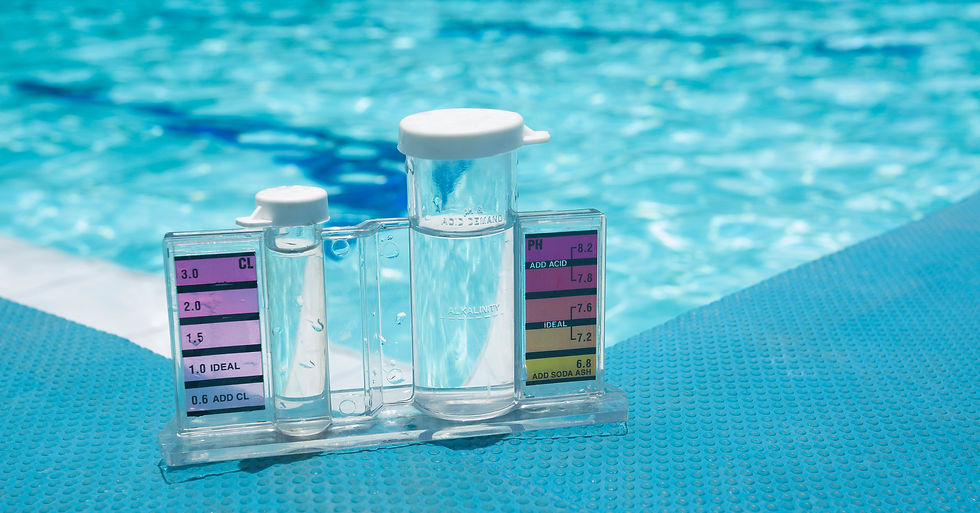Acidosis & Body Fluid Acid Levels: Human Health
- Sylvia Rose

- Feb 13, 2025
- 5 min read
Updated: Feb 14, 2025
Acidosis is a medical condition characterized by increased acidity in body fluids like mucus, sweat, tears and urine and sometimes blood. Acidosis affects vital bodily functions and physiological reactions.

Body fluids include:
Interstitial fluid (cells)
Synovial fluid (joints)
Mucus
Saliva
Semen
Blood
Gastric Fluid
Pus
Bile
Phlegm
Lymph fluid
The proper pH level in bodily fluids helps balance countless functions of the body such as oxygen delivery and cell health. When it tips too far towards acidity, it prompts acidosis.

pH is on a scale from 0 to 14, with 7 as neutral. Below 7 is acidic, and above is alkaline (or basic). In human blood, normal pH range is tightly controlled between 7.35 and 7.45. A pH below 7.35 can be a sign of acidosis.
The human blood is rarely acidic. It's on its own system. Under normal conditions the body is able to regulate blood pH. Saliva and mouth pH hovers at 6.2 - 7.8.
Urine pH levels are good indicators of body fluid acidity. They can fluctuate normally from 4.5 to 8, between acid and alkaline.

Causes of Acidosis
Acidosis can emerge from various sources. It can cause both physical and mental health problems and is broadly categorized into two types: metabolic acidosis and respiratory acidosis.
Metabolic Acidosis
Metabolic acidosis happens when the body produces too much acid or the kidneys are unable to remove enough from the body. This type of acidosis arises from a loss of bicarbonate, a base helping neutralize acids. Bicarbonate has functions in the physiological pH buffering system.

Common causes include:
Diabetic Ketoacidosis (DKA): Often seen in poorly controlled diabetes, this condition results from the breakdown of fatty acids into ketones, leading to an increase in blood acidity and sugar level.
This is a serious complication of diabetes. The body produces excessive ketones, acidic byproducts, due to lack of insulin.

Renal Failure: When the kidneys fail to excrete acids efficiently, it can lead to an accumulation of metabolic acids in the body fluids.
Diarrhea: Excessive loss of bicarbonate through the gastrointestinal tract during bouts of diarrhea can contribute to metabolic acidosis.
Lactic Acidosis: This form of acidosis can occur due to inadequate oxygenation of tissues and the body produces too much lactic acid. This may be due to intense exercise, shock, sepsis or medical stressors.

Severe Dehydration: Loss of fluids raise concentration of acids in the body.
Certain Poisons or Toxins: Ingesting substances like methanol or ethylene glycol (antifreeze) can cause metabolic acidosis.
Respiratory Acidosis
This occurs when the lungs can't remove enough carbon dioxide (CO2) from the body. CO2 is a waste product of metabolism. When it builds up in the fluids, it increases acidity.

Accumulation of carbon dioxide causes increased carbonic acid levels. Factors include:
Chronic Obstructive Pulmonary Disease (COPD): Patients with COPD may struggle to expel carbon dioxide, resulting in respiratory acidosis over time.
Asthma Attacks: Severe asthma attacks reduce the ability to ventilate effectively, trapping carbon dioxide in the lungs.
Neuromuscular Disorders: Conditions affecting muscle control, like ALS or muscular dystrophy, can impair effective breathing.
Pneumonia, sleep apnea and overdose of narcotics or sedatives which depress breathing can also trigger acidosis.

Symptoms of Acidosis
The symptoms of acidosis can vary depending on the type and severity of the condition. Some common signs and symptoms include:
Rapid and shallow breathing: the body's attempt to expel excess CO2.
Confusion and disorientation
Fatigue and weakness
Headache
Nausea and vomiting
Sleepiness
Lack of appetite
Seizures (in severe cases)

Diagnosis and Treatment
Diagnosing acidosis includes blood tests to measure pH, CO2 levels and electrolyte balance. Additional tests may be needed.
Treatment focuses on the root cause of the acidosis and restoring the body's pH balance with methods such as:.
Oxygen therapy: For respiratory acidosis.

Mechanical ventilation: To help breathing in severe respiratory acidosis.
Intravenous fluids and electrolytes: To correct dehydration and electrolyte imbalances.
Insulin: For diabetic ketoacidosis.
Bicarbonate therapy: To neutralize excess acid (used cautiously).
Dialysis: In severe cases of metabolic acidosis caused by kidney failure.

Prevention of Acidosis
Manage underlying conditions: Properly managing diabetes, lung disease, and kidney disease is necessary. Living in denial makes things worse and possibly untreatable.
Stay hydrated: Drink plenty of fluids, especially during exercise and in hot weather. Don't drink athletic sports drinks if not sweating. It can cause heart palpitations and other problems. Water is life's elixir.
Avoid alcohol and toxic substances: Limit alcohol consumption and don't ingest any other poisonous substances. Cannabis lovers: cannabinoids are acidic, and edibles may increase acidity of body fluids.
Get medical help if symptoms of acidosis appear.

Non-Fiction Books:
Fiction Books:
READ: Lora Ley Adventures - Germanic Mythology Fiction Series
READ: Reiker For Hire - Victorian Detective Murder Mysteries


